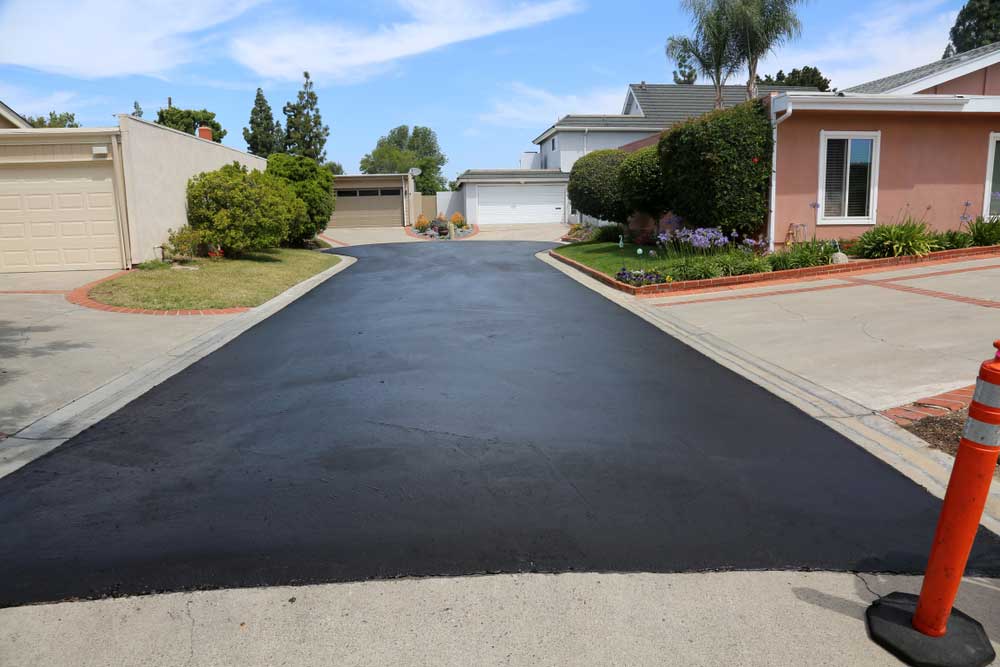Any asphalt paving project whether for a residential driveway or a commercial parking lot, both require general upkeep to preserve and keep the surface in good working condition. As a property owner, it is normal for you to ensure that such a home improvement will last you for a really long time, but to be able to achieve that you also have to be willing to observe regular maintenance to help protect your driveway or parking lot.
To further understand how you can protect your asphalt surface, it is crucial to first learn what is causing your pavement to crack in the first place.
What is causing your asphalt driveway to crack?
- Excessive Amounts of Water
If there is water pooling in some areas of your driveway especially if you know it has only been paved could be a sign that you have a drainage problem. Ideally, your driveway should be slightly sloped downwards to allow water runoff to flow away from the asphalt surface to avoid excessive amounts to seep through the pavement and cause fissures to develop on your asphalt.
In more advanced cases, the root of the problem could be due to a weakened base or an improper installation. In this case, the only viable solution to correct it is to completely replace the existing flawed or damaged driveway base.
- Tree Roots
We always remind homeowners to consider existing or growing vegetation or trees before proceeding with a driveway installation. The roots of trees apply uneven pressure to various areas in your pavement causing it to break down the material potentially obstructing the surface or inflicting damage to the gravel base. For these reasons, we advise property owners to give much consideration regarding surrounding plants or trees.
- UV Light
Bitumen has a natural and inevitable reaction to oxygen. However, oxygen along with the presence of UV light from the sun speeds up this oxidation process resulting in faster aging and deterioration of the asphalt surface.
- Overloading
Overloading happens when there is excessive pressure weighing on the same spot on your driveway. Asphalt is a durable and flexible material, however, it also has its limitations and constantly subjecting your driveway to tremendous weight through regularly parking on the same spot will soften the asphalt beneath and could develop cracks and/or holes over time.
- Salt
A lot of people use salt or sodium chloride as a deicing agent. However, although it is powerful and truly effective in melting ice and snow, it is also a strong and corrosive element for your asphalt. Alternative materials that you can use are calcium chloride and sand. They can also melt ice and snow but are gentler with your asphalt pavement.
Benefits of Sealcoating Your Asphalt Driveway or Parking Lot:
- Repels water
One of the primary and most important benefits of sealcoating your residential driveway is that by adding a layer of sealer it will give your pavement an extra sheet of protection against rainwater, hail or snow that can penetrate the surface and loosen the aggregates beneath.
2. Protects your asphalt against sunlight and oxygen
Prolonged exposure to extreme heat can also damage your asphalt pavement making the surface brittle and stiff. At this point, the elasticity of the asphalt also loses over time turning it into a lighter black or sometimes a gray color signifying its deterioration. Furthermore, without ample protection, your driveway will be exposed to harmful elements such as UV light and oxygen that will hasten the oxidation process that could lead to early collapse.
3. Repels oil leaks from vehicles
All homeowners will agree that oil leaks staining your driveway is not a pleasant sight to see, but apart from ruining your driveway’s aesthetic appeal, oil leaks also have adverse effects on your asphalt. Since your asphalt driveway is composed of stone particles, sand, and asphalt cement which is a petroleum-based product, adding oil to that mixture will chemically react with the material and soften the surface until the material starts to break down and fall off leaving a hole in your driveway. To prevent that from happening, put on an extra coat of sealer.
4. Reduces wear and tear on your vehicles
Sealing your asphalt driveway will increase its smoothness by 25%. In turn, a smooth surface will minimize the wear and tear on your vehicle’s tires preserving both your car tires and your asphalt surface in good condition. Of course, this saves you on maintenance expenditures and prolongs the lifespan of both assets.
5. Adds curb appeal to your home
Sealing your asphalt gives off a sleek and smooth finish that amplifies the dark color of your driveway which is visually pleasing to the eye thereby increasing your property’s “curb appeal”. Do you also know that a well-maintained driveway will increase your property’s value if you’re thinking of selling your home? This is because it means that the next owner would be able to save on future maintenance or replacement costs on the driveway.
How often should you apply a sealcoat?
Sealcoating is an additional layer of protection, but overdoing it can also lead to disastrous results. As a general rule of thumb, you should seal your driveway periodically at least once every 2 to 3 years. Sealing it every year could peel off your driveway and can do more harm than good so be careful not to go overboard with it. As much as sealcoating can be a DIY project, a professional driveway contractor in Richmond will have the necessary skills, knowledge, and equipment to make sure that your driveway is sealed properly.
For other asphalt paving needs, be sure to hire a reliable and trustworthy contractor such as Asphalt paving Richmond VA. As for similar reputable contractors looking forward to growing their paving business, book a call with driveway contractor in Richmond and they’re sure to help you double your sales.

